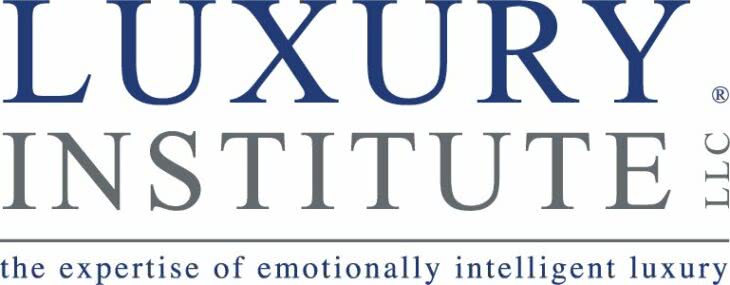
Luxury Institute Shares Key 2023 Trends and Predictions for the Global Luxury Industry
Opinion contributed by the Luxury Institute.
The Luxury Institute announced key findings from its recent qualitative survey with its Global Luxury Expert Network (GLEN) members, comprised of prominent luxury goods and services CEOs, C-levels and consultants, as well as additional top-tier luxury executives and experts. Responders were asked to predict key macro-economic challenges for 2023 and predict whether the current economic slowdown in luxury is turning into an economic downturn or a recession, and how strong. Responders were also asked to predict the impact on key luxury categories. Below are the findings:
Key Macro-Economic Potential Challenges:
- Global Fragility: Central banks continue to raise interest rates, and there is no escaping some persistent inflation. High interest rates bring about a mild/mid-level global recession that may start to recede late in 2023 or early 2024
- Significant Tech, Finance, and corporate layoffs (and layoff fears) affect wealth and luxury demand in key markets
- China recovers solidly, yet real estate bankruptcies and consumption risks remain
- A major cybersecurity event may bring major economy(ies) to a halt and create serious conflict with sponsoring foreign powers
- Ukraine war remains a key global and regional instability factor, keeps inflation higher, and keeps global economic growth at risk, especially in Europe
Overall: After two years of strong growth, 2023 will be mostly subdued. True luxury will be resilient based on top HNW and UHNW (20% customers = 70% sales) customer spending. Each brand is affected differently based on target client and category.
Fashion and Leather Goods:
2023 vs 2022: Up mid-single digits, especially leather goods. Apparel may remain flat because of lack of newness, and it is highly discretionary.
Key Reasons:
- The few top-tier winners grow, with a long tail of mediocre brands flat to down
- Pricing power limited after substantial increases in past three years
- People consume less, but better quality. Previously owned continues to grow
- Classic leather goods from top brands remain strong as statement pieces and investments
Perfumes and Cosmetics:
2023 vs 2022: Up high single to low double digits
Key Reasons:
- Traditionally most resilient/timeless necessity and indulgence in downturn
- More occasions to use beauty products even with lower visits to office
- Fragrances and beauty products remain popular with all generations, especially Gen-Z
Travel and Hospitality:
2023 vs 2022: Up low double digits
Key Reasons:
- Growth is solid as pent-up travel demand continues, but at a slower growth rate vs 2022
- High room rates and airline prices may become a challenge for aspirational consumers
- Lots of new luxury properties coming on stream that will create more competition
- Higher value overseas travel continues to recover well as people gain confidence
- Airlines service levels and supply are wild cards no one can predict/affect travel growth
Automotive:
2023 vs 2022: flat to down
Key Reasons:
- Supply improves after a net down year, but high prices and interest rates dampen demand
- Luxury upgrades continue at a slower rate
- Luxury pre-owned market slows as new cars are available
- Electric cars drive new car demand strongly but can’t make up fully for negative factors
Wines and Spirits:
2023 vs 2022: Up medium single digits
Key Reasons:
- Innovation slows in category, not a lot of new news
- Home consumption flattens and on-premise remains a growth question mark
- Quality over quantity as Gen-Z and Millennials drive connoisseurship
- Brands offer more successful ultra-luxury options that cater to HNW
- Ultimately, the category is always about: more stress, more consumption
Watches and Jewelry:
2023 vs 2022: Up high single digits
Key Reasons:
- Continued growth in iconic, branded pieces as investment items, but rationality prevails
- Wearing a fine watch or piece of jewelry remains a defining statement
- Emotionally powerful/ storied, special occasion pieces remain popular
- Quality over quantity continues as they look for investment pieces
Luxury Retailers (Offline and Online):
2023 vs 2022: Up low single digits
Key Reasons:
- Consumer preference to buy more in-store/less online favors omnichannel players
- Top-tier brands are still going mostly direct. Retailer offers deteriorate with lesser brands
- Poor clienteling and service continue due to obsolete training and labor shortages; hurt client retention, transaction values and referral rates
- Returns remain high in all channels, hurting profitability in a weak margin model
- Even with healthy sales, profits are elusive for multichannel, and especially for online only players
Luxury Real Estate:
2023 vs 2022: Up low single digits
Key Reasons:
- Top-tier properties continue to sell at high prices, but are limited in volume
- Few affluents want/need to buy/sell into a declining market, so holding back
- Prices and volume have declined solidly for a year but may improve due now due to easing of high interest rates
- New luxury home construction is slow to build up needed inventory
- Apartment rents go lower due to higher rental inventory

About Luxury Institute
Luxury Institute is the world’s most trusted research, training, and elite business solutions partner for luxury and premium goods and services brands. With the largest global network of luxury executives and experts, Luxury Institute has the ability to provide its clients with high-performance, leading-edge solutions developed by the best, most successful minds in the industry. In the last 20 years, Luxury Institute has served over 1,100 luxury and premium goods and services brands. Luxury Institute has conducted more quantitative and qualitative research with affluent, wealthy and uber-wealthy consumers than any other entity. This knowledge has led to the development of its scientifically proven high-performance, emotional intelligence-based education system, Luxcelerate, that dramatically improves brand culture and financial performance. Luxury Institute has also innovated the Advanced Personalization Xchange (APX), powered by DataLucent, to empower affluent consumers to license their digital platform data to premium and luxury brands they trust legally, securely and privately in exchange for fair value rewards and benefits.
To learn more about Luxury Institute, please contact us at LuxuryInstitute.com.